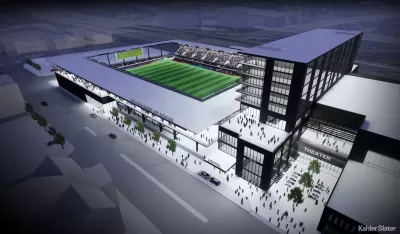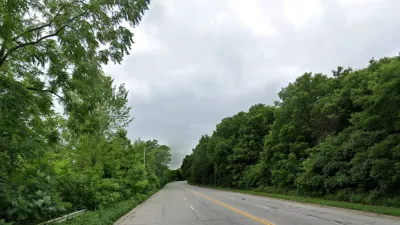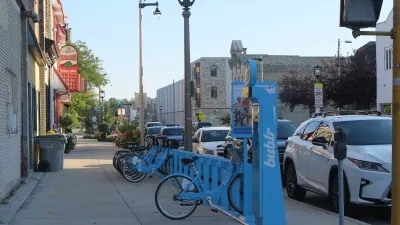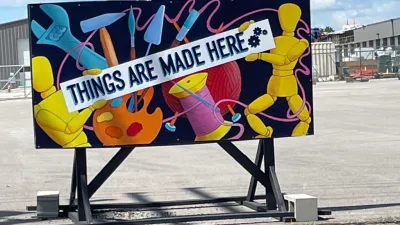While their developers often tout jobs and local economic development as benefits of major stadium projects, research shows these venues often make little impact on local economies.

As Milwaukee debates the merits of a $160 million soccer stadium development that will likely require public funding, Graham Kilmer, writing in Urban Milwaukee, points out that “Academic economists almost universally agree that sports projects do not generate new jobs or income for a city.”
Furthering this point, a new report from the Center on Wisconsin Strategy (COWS) “relies on two studies that show the majority of economists agree that sports projects do not actually provide the benefits touted by developers and the report lays out five soccer stadium projects across the U.S. in the last five years, which together have received $500 million in public money.”
According to experts, sports venues don’t produce the expected economic benefits for two main reasons: the substitution effect, which holds that the money spent on sports would be spent on other entertainment in the area, and leakage, wherein public investment “leaks out of the community” via high salaries that are spent outside the local area.
“If public officials are looking for projects to stimulate growth, they should look to infrastructure and education, according to the St. Louis Fed paper [analyzed in the COWS study].” COWS and their collaborator, the Milwaukee Area Service and Hospitality Labor Organization (MASH), argue that “Milwaukee policy makers should look at what kind of benefits they can gain for the community if they consider financing the project.”
FULL STORY: Report Finds Little Economic Impact From Stadium Projects

Montreal Mall to Become 6,000 Housing Units
Place Versailles will be transformed into a mixed-use complex over the next 25 years.

Planetizen Federal Action Tracker
A weekly monitor of how Trump’s orders and actions are impacting planners and planning in America.

DARTSpace Platform Streamlines Dallas TOD Application Process
The Dallas transit agency hopes a shorter permitting timeline will boost transit-oriented development around rail stations.

Study: 4% of Truckers Lack a Valid Commercial License
Over 56% of inspected trucks had other violations.

Chicago Judge Orders Thousands of Accessible Ped Signals
Only 3% of the city's crossing signals are currently accessible to blind pedestrians.

Philadelphia Swaps Car Lanes for Bikeways in Unanimous Vote
The project will transform one of the handful of streets responsible for 80% of the city’s major crashes.
Urban Design for Planners 1: Software Tools
This six-course series explores essential urban design concepts using open source software and equips planners with the tools they need to participate fully in the urban design process.
Planning for Universal Design
Learn the tools for implementing Universal Design in planning regulations.
City of Mt Shasta
City of Camden Redevelopment Agency
City of Astoria
Transportation Research & Education Center (TREC) at Portland State University
US High Speed Rail Association
City of Camden Redevelopment Agency
Municipality of Princeton (NJ)





























